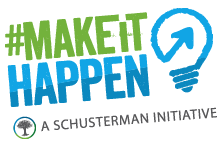Monday Markets for Writers
Monday brings the weekly batch of no-fee competitions/contests, paying submission calls, and jobs for those of us who write (especially those of us who write fiction, poetry, and creative nonfiction).
Monday brings the weekly batch of no-fee competitions/contests, paying submission calls, and jobs for those of us who write (especially those of us who write fiction, poetry, and creative nonfiction).
Monday brings the weekly batch of no-fee competitions/contests, paying submission calls, and jobs for those of us who write (especially those of us who write fiction, poetry, and creative nonfiction). (more…)
 Writing-related resources, news, and reflections to enjoy over the weekend.
Writing-related resources, news, and reflections to enjoy over the weekend.
Have a great weekend, everyone.
 If you follow my Practicing Writing blog, you may recall that over the past several months, I’ve been trying to learn a little more about playwriting.
If you follow my Practicing Writing blog, you may recall that over the past several months, I’ve been trying to learn a little more about playwriting.
As with much of my creative work, I’m drawn especially to the idea of writing a play with specifically Jewish content. (Actually, I might adapt a short story by another writer, although I’ve also considered adapting work of my own.)
Part of my learning process to date has consisted of attending plays and, to stretch a popular phrase, “watching as a writer.” In the past 10 days or so, in fact, I’ve seen three Jewishly-focused productions: “The Model Apartment” (Judith Miller’s review for Tablet echoes my thoughts on that one); “Bad Jews” (about which I’m less enthusiastic than Miller is); and the standout: “Arafat in Therapy.”
A solo show written and performed by Australian-Israeli Jeremie Bracka, “Arafat in Therapy” came to my attention via The Jewish Week. Its format and style remind me of Anna Deavere Smith’s “Fires in the Mirror,” which I saw many years ago in Massachusetts (although Bracka did not use interviews to shape his characters). Again, I’m struck by the extraordinary talents that are involved in writing and performing these solo shows that feature multiple characters.
My personal ambitions are much more modest. At the moment, my main ambition is simply to learn how to write a play. Ideally, I’d do this in a Jewish context.
And if the Schusterman Foundation funds my #MakeItHappen micro-grant proposal, “Jewish Playwriting 101” will become a reality.
Read all about my idea. “Like” it! Share it! And let me know what you think about it!
Thank you.
Monday brings the weekly batch of no-fee competitions/contests, paying submission calls, and jobs for those of us who write (especially those of us who write fiction, poetry, and creative nonfiction). (more…)